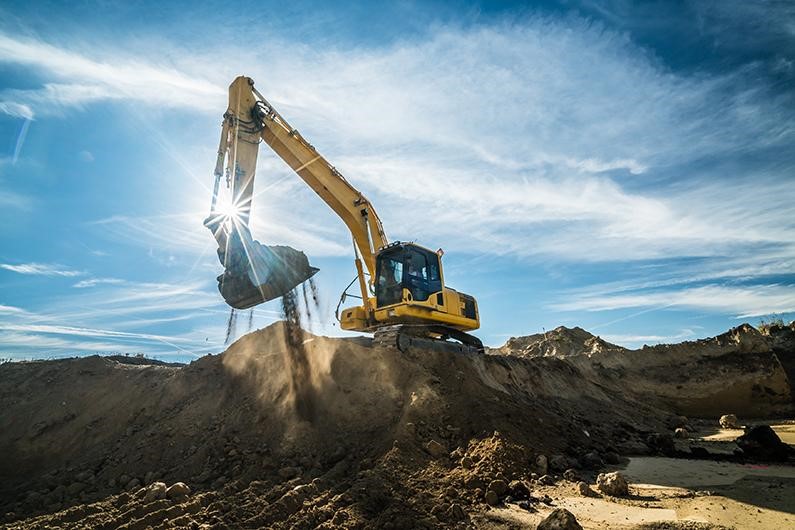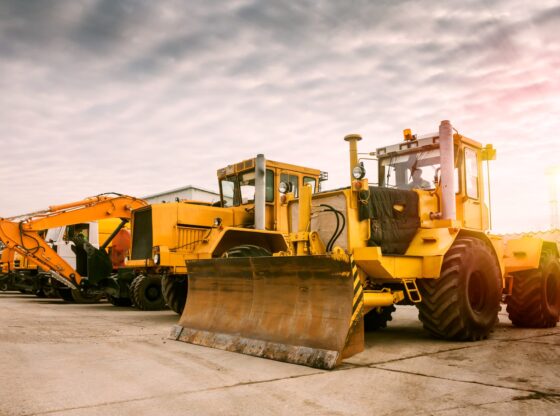Industrial equipment can be costly, and financing it can be a challenging task, especially for small and medium-sized enterprises (SMEs). In Saudi Arabia, industrial equipment financing can be a great option for businesses looking to expand their operations or upgrade their equipment. However, the process of applying for it can be confusing and overwhelming. This article will guide you through the process and help you secure the necessary funds to grow your business.
Types of Industrial Equipment Financing
When it comes to industrial equipment financingthere are plenty of options to choose from. Here are some of the top methods:
- Equipment leasing is a common method of financing industrial equipment, where the lender (lessor) buys the equipment and leases it to the borrower (lessee) for a specified period. The lessee is responsible for the payments, insurance, and maintenance of the equipment.
- Another common industrial equipment financingoption isEquipment loans. Here, the borrower obtains a loan from the lender to purchase the equipment, and the equipment serves as collateral for the loan. The borrower pays back the loan in installments over a specified period.
- A sale and leaseback arrangement is where the borrower sells the equipment to the lender and then leases it back from them. This method frees up capital for the borrower while still allowing them to use the equipment.
- Equipment Financing Agreements (EFAs) are similar to equipment loans, but they are usually offered by the manufacturer or dealer of the equipment. The lender pays the manufacturer or dealer for the equipment and then leases it to the borrower. The borrower pays back the lender in installments over a specified period.
- Asset-based financing is a financing option where the lender provides a loan based on the value of the borrower’s assets, such as equipment, inventory, and accounts receivable. The lender may take a security interest in the assets to secure the loan.
- Equipment Sale with Buyback Option: In this financing method, the borrower sells the equipment to the lender, who then leases it back to the borrower for a specified period. At the end of the lease, the borrower has the option to buy back the equipment at a pre-determined price.
- A revolving credit facility is a line of credit that the borrower can use to finance the purchase of industrial equipment as needed. The borrower only pays interest on the amount of credit used, and the credit line is replenished as payments are made.
Eligibility Criteria for Industrial Equipment Financing
To apply for industrial equipment financing in KSA, you must meet certain eligibility criteria. These criteria vary depending on the lender and the type of financing being sought. These are some of the common factors that you must consider:
- Credit score: Most lenders will review the applicant’s credit score as a measure of creditworthiness. A good credit score can increase the chances of being approved for financing.
- Business history: Lenders may look at the length of time the business has been operating and its financial stability. A company with a solid financial track record may be more likely to be approved.
- Collateral: Depending on the lender, collateral may be required to secure the financing. This collateral may be the equipment being financed or other assets owned by the business.
- Down payment: A down payment may be required by some lenders, and the amount will vary depending on the equipment being financed and the lender’s policies.
- Industry experience: The lender will review the applicant’s industry experience and knowledge. Particularly if the equipment being financed requires specialized knowledge to operate.

Documents Required for Industrial Equipment Financing
To apply for industrial equipment financing you will need to provide certain documents. These documents help the lender assess the borrower’s creditworthiness and ensure that they will repay the loan on time. These essential documents are required for industrial equipment financing:
- Business Registration Documents: These include the business registration certificate, trade license, and any other relevant permits to conduct business in KSA.
- Financial Statements: The borrower needs to provide financial statements such as income statements, balance sheets, and cash flow statements for the last three years. This helps the lender evaluate the borrower’s financial stability and determine the loan amount.
- Projected Cash Flow: The borrower needs to provide a projected cash flow statement that shows how the equipment will generate revenue and how the loan will be repaid.
- Equipment Quotation: The borrower needs to provide a quotation from the equipment supplier. This must include the cost of the equipment, installation, and any other related expenses.
- Personal Guarantees: The borrower’s personal guarantees, such as assets and properties are required to secure the loan.
- Insurance Policies: The borrower needs to provide proof of insurance policies for the equipment, property, and liability insurance.
- Other Relevant Documents: These include the borrower’s tax returns, credit reports, and any legal documents related to the business.
Finding the Right Lender for Industrial Equipment Financing
Finding the right lender is a crucial step when it comes to industrial equipment financing. These tips will help you find the right lender:
- Research: Take time to research and compare different lenders. Look for information online, ask for referrals from other businesses, and read reviews from previous clients.
- Reputation: Partner with a lender who has a good reputation in the industry. You can check with industry associations to verify a lender’s reputation.
- Interest Rates: Interest rates are a significant factor in choosing a lender. Look for a lender with competitive interest rates, as this can help you save a lot of money in the long run.
- Flexibility: Choose a lender who offers flexible repayment terms that suit your business needs. This could include the option to make extra payments or the ability to change your repayment plan if your business experiences unexpected changes.
- Experience: Look for a lender who has experience in your industry. They will be more familiar with the types of equipment you need and the challenges you may face in your business.
- Customer Service: Choose a lender who offers excellent customer service. They should be responsive and willing to answer all of your questions.
- Terms and Conditions: Before signing a loan agreement, carefully review the terms and conditions. Make sure you understand all of the fees, penalties, and repayment requirements before committing to a loan.
Conclusion
Financing industrial equipment in KSA is a viable solution for businesses looking to acquire machinery without depleting their working capital. However, it’s crucial to choose the right lender to ensure a smooth process and favorable terms. Remember to also factor in the cost of maintenance and upkeep of the equipment and be sure to keep up with payments to avoid default and any associated penalties. If you are looking for a trusted company to help you with industrial equipment financinghave a look at Kanoo Machinery. We have helped numerous businesses, and we can help you too. Visit our website or get in touch with us at 800-KM100(56100).



















